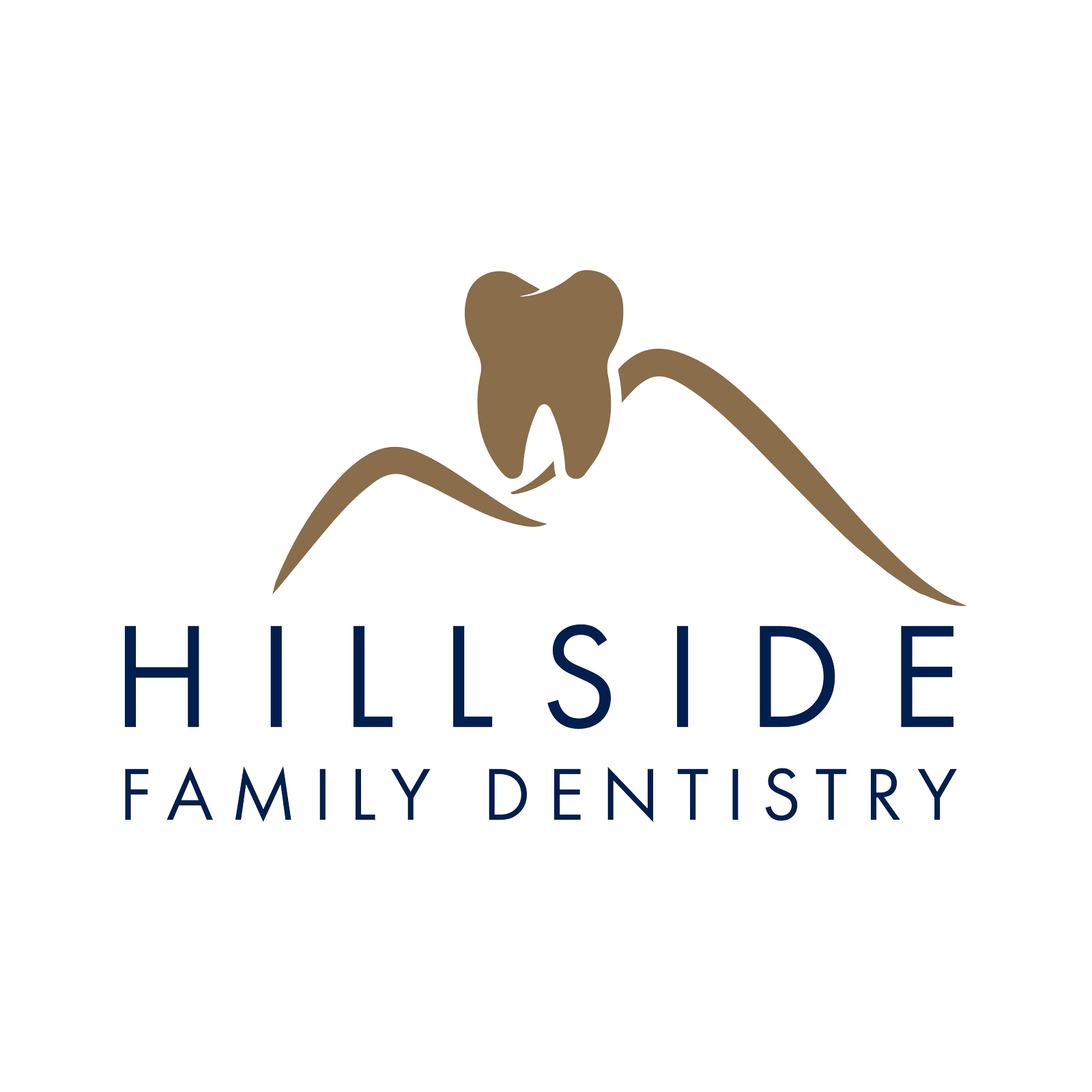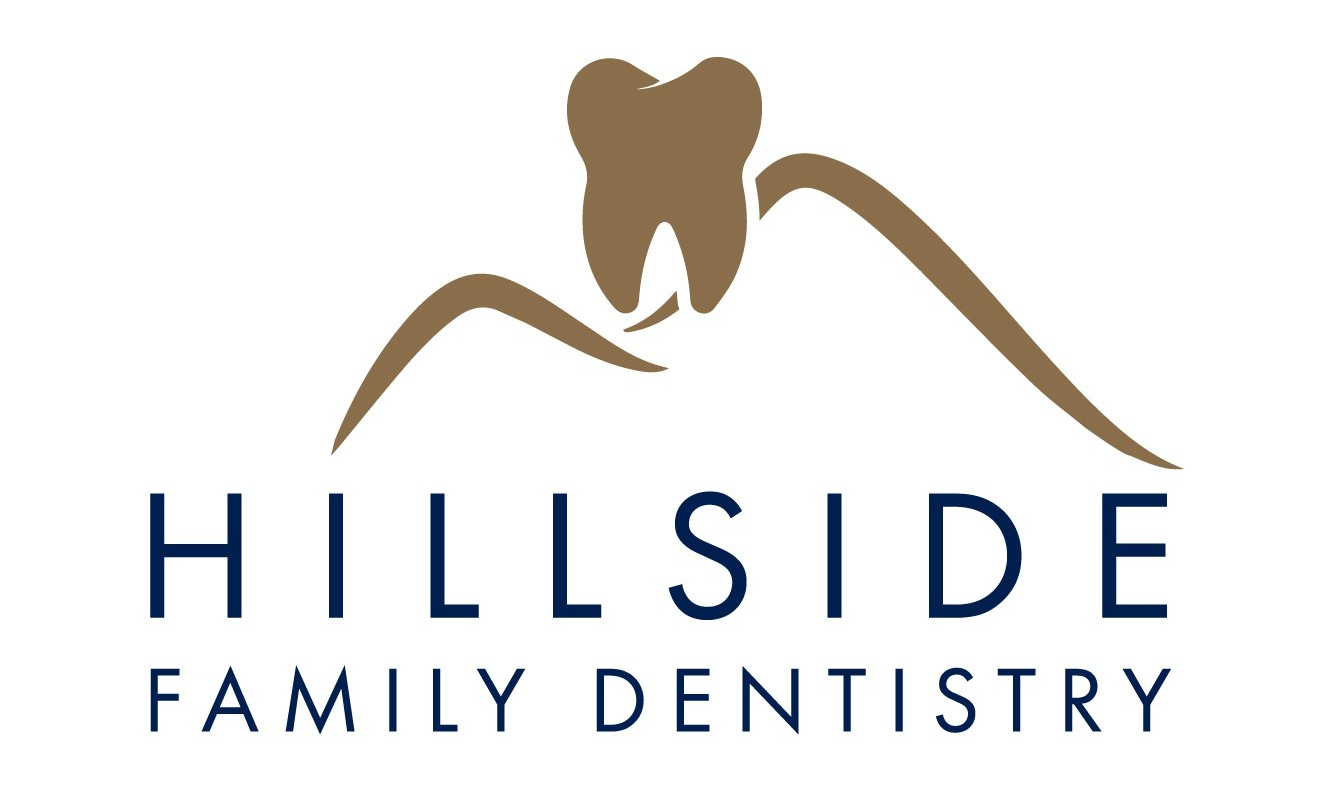Our Blog - For The Latest Dental News in Acworth

Let’s say you’ve gone through the journey of getting a dental implant—it wasn’t overnight, and it definitely wasn’t a one-size-fits-all deal. But now you’ve got a solid, natural-looking tooth that feels like it’s always been there. So… what now? Well, here’s the thing—dental implants can last a lifetime, but they don’t maintain themselves. Much like a new car or a home appliance, they need care, attention, and just a little know-how. At Hillside Family Dentistry in Acworth, GA, we want every implant to stand the test of time. Because when you’ve invested in your smile, the goal is to make sure it sticks around. Let’s break down what it really takes to make dental implants last—and why that maintenance matters. What Makes Dental Implants Different? Dental implants aren’t like dentures or bridges—they don’t just sit on top of your gums. They’re surgically placed into the jawbone, acting as artificial tooth roots. Over time, the implant fuses with the bone in a process called osseointegration. Once that bond is strong, a crown is attached on top, creating a durable, natural-looking replacement. The key advantage? Implants function like real teeth. You can eat, smile, and talk without worrying about slippage or adhesives. But just like natural teeth, implants can still be affected by poor hygiene, trauma, or underlying health issues. How Long Do Dental Implants Actually Last? On average, dental implants boast a 90–95% success rate over 10 years, according to the American Association of Oral and Maxillofacial Surgeons. But with great oral care, many implants last 25 years—or even a lifetime. The crown (the visible part) may need replacement every 10–15 years due to wear and tear. But the implant post—the part fused to your bone—can last forever. That’s where proper care makes all the difference. Habits That Help Implants Last You don’t need a complicated dental regimen. But a few simple habits can make a world of difference for your dental implants. 1. Brush Like You Mean It (But Gently) Just because the implant can’t get a cavity doesn’t mean you can slack off. Gum health is everything. Use a soft-bristled toothbrush (manual or electric) and a non-abrasive toothpaste to gently brush your teeth—especially around the implant. Twice a day, every day. No shortcuts. 2. Floss Around the Implant This one’s non-negotiable. Bacteria love to hide around the base of implants, and if left unchecked, they can lead to peri-implantitis—a gum disease that affects the tissues around the implant. Use implant-safe floss, soft picks, or a water flosser to clean between your teeth and around the implant base daily. 3. Avoid Hard Foods and Bad Habits Chewing on ice, hard candies, or using your teeth as tools (hello, bottle openers) can chip the crown or strain the implant post. Smoking? That’s even worse—it slows healing, increases infection risk, and significantly raises your chances of implant failure. Let’s be real: if you’ve just invested in a brand-new smile, don’t sabotage it with habits that could cause long-term damage. 4. Stay on Top of Dental Visits Even if your implant feels great, regular checkups at Hillside Family Dentistry are essential. We’ll clean the area, check your bite, and make sure your implant is still integrating properly with the bone. Skipping cleanings or exams can allow issues to go unnoticed—and untreated. Warning Signs Your Implant Needs Attention Most dental implants function smoothly. But if something feels off, listen to your mouth. Early signs of implant trouble include: Swelling or tenderness near the implant Gums pulling away or receding Difficulty chewing or pain when biting A loose crown or shifting feeling Bleeding during brushing or flossing The earlier these issues are caught, the easier they are to fix. Don’t wait until it gets worse—early intervention is your best friend. Proven Benefits of Long-Lasting Dental Implants Dental implants don’t just look and feel great—they support overall oral health, too. According to the International Journal of Oral & Maxillofacial Implants and the Mayo Clinic, the long-term benefits of successful implant maintenance include: Preserved bone structure : Implants help prevent jawbone deterioration, which is common after tooth loss. Improved chewing efficiency : Unlike dentures, implants restore full bite force—so you can enjoy your favorite foods again. Better speech and comfort : No slipping or clicking, just natural function. Support for surrounding teeth : Implants prevent neighboring teeth from shifting, helping you maintain a well-aligned smile. Cost savings over time : Yes, implants are an investment—but they’re more durable than bridges or dentures, which often need replacing. In other words, dental implants are about more than filling a gap. They preserve structure, function, and quality of life. What About Long-Term Risks? While rare, long-term risks can include: Peri-implantitis : A gum infection around the implant Implant failure : Usually due to smoking, uncontrolled diabetes, or poor oral hygiene Bone loss : If the implant isn’t properly integrated or maintained The good news? These issues are almost always preventable with proper home care and regular visits. Lifelong Smiles Start With Everyday Choices Dental implants are one of the most reliable, natural-looking solutions for missing teeth. But they’re not set-it-and-forget-it. Like any part of your body, they need your attention—just a little, every day. If you’re already living with dental implants, take the time to treat them like your natural teeth: brush, floss, avoid risky habits, and don’t skip checkups. And if you’re considering implants, know that with the right care, they can serve you beautifully for decades. Want to ensure your implants stay strong for the long haul? Call Hillside Family Dentistry at 770-485-9949 or visit our Acworth office at 4408 Cobb Pkwy NW to book a consultation and learn how long-term implant success starts with smart, simple care.

Let’s say you’re enjoying a normal Tuesday. Maybe you’re chewing ice, biting into something crunchy, or taking a basketball to the mouth—then boom: a cracked tooth, throbbing pain, or something that just doesn’t feel right. Cue the panic. The big question is—do you need emergency dentistry, or can it wait? That moment of uncertainty can feel overwhelming. The truth is, not every dental issue needs urgent care, but some do—and knowing the difference can save you from complications, not to mention a whole lot of pain. At Hillside Family Dentistry in Acworth, GA, we’re here to walk you through what qualifies as a dental emergency and how to know when it’s time to act fast. What Counts as a Dental Emergency? Emergency dentistry deals with situations that require immediate attention to save a tooth, stop bleeding, relieve severe pain, or treat serious infection. Think of it like this: if it’s keeping you up at night, interfering with daily activities, or getting worse by the hour—it’s probably an emergency. Here are some of the most common dental emergencies: 1. Severe Toothache A toothache that doesn’t go away—or gets worse—is a big red flag. Persistent pain may indicate deep decay, an abscess, or nerve damage. If over-the-counter pain relievers aren’t cutting it and there’s swelling or sensitivity to temperature, call your dentist ASAP. 2. Knocked-Out Tooth This is one of the clearest emergencies. If a permanent tooth has been knocked out, time is critical. If you act within 30–60 minutes, there’s a good chance it can be saved. Handle the tooth gently, rinse it (but don’t scrub), and try to place it back in its socket—or store it in milk or saliva while you get to the dentist. 3. Cracked or Broken Tooth Not all cracks are equal. A minor chip may not require immediate attention, but a deep fracture or break that causes pain or exposes the tooth's inner layer (the pulp) absolutely does. 4. Swelling or Abscess Swelling in the face or gums can indicate an infection or abscess, which can spread if left untreated. This is not something to wait on. An untreated abscess can affect your jawbone or bloodstream, leading to more serious complications. 5. Uncontrolled Bleeding Bleeding that won’t stop after trauma or dental work needs urgent attention. Whether it’s due to gum disease, injury, or surgery, ongoing bleeding is not normal and should be addressed quickly. When It Can Wait—But Still Needs Attention Not every dental issue is an emergency, but that doesn’t mean you should ignore it. Here are some situations that can wait a day or two—but still need follow-up: Dull toothache or sensitivity that comes and goes Small chip in a tooth that doesn’t hurt Lost filling or crown without pain Minor gum irritation These are what we might call “non-urgent” concerns. They can wait a short while—but you should still call Hillside Family Dentistry to schedule a visit so they don’t turn into bigger problems down the road. Emergency Dentistry: The Professional Benefits Why not just wait it out and see if things improve on their own? Because time matters when it comes to dental health. According to the American Association of Endodontists, treating dental pain early can help prevent tooth loss, spread of infection, and more invasive procedures down the line. Here are some evidence-based benefits of emergency dentistry: Saves natural teeth : Knocked-out or cracked teeth often have better outcomes when treated within the first hour. Stops infection from spreading : Dental infections can extend to the jaw, sinuses, or bloodstream if left untreated. Relieves pain and anxiety : Prompt care can eliminate discomfort, improve sleep, and help you get back to daily life. Prevents expensive procedures later : Small problems snowball into major ones if neglected—quick care saves time and money. The Journal of the American Dental Association also highlights that emergency dental interventions can significantly reduce ER visits and opioid prescriptions—so getting proper dental care early truly impacts your whole health picture. So… Am I Experiencing a Dental Emergency? Ask yourself the following: Is the pain sharp, sudden, or severe? Is there bleeding that won’t stop? Is a tooth loose, broken, or completely out? Is there facial swelling or signs of infection (fever, pus, bad taste)? Is it interfering with eating, sleeping, or functioning? If the answer to any of these is yes—it’s likely an emergency. And the best thing you can do is call your dentist right away. At Hillside Family Dentistry, we prioritize emergency appointments and aim to get you seen as soon as possible. What to Do in the Meantime If you’re waiting to be seen or heading to the office, here are some tips: Toothache : Rinse with warm salt water and use a cold compress. Avoid heat—it can make infection worse. Swelling : Apply cold compresses. Do not try to “pop” anything. Knocked-out tooth : Keep it moist in milk, saline, or your own saliva. Handle it by the crown (not the root). Broken tooth : Save any pieces. Rinse your mouth and use gauze if there’s bleeding. And no, don’t reach for super glue. That’s not a DIY dental fix—promise. Peace of Mind When You Need It Most Dental emergencies can catch you off guard—but knowing how to respond makes all the difference. Whether it’s an agonizing toothache, a knocked-out molar, or scary swelling, fast action can prevent long-term damage and get you back to feeling like yourself. At Hillside Family Dentistry, we’re here to help—no judgment, no waiting games. We understand how stressful dental pain can be, and we’re prepared to treat it with speed, compassion, and skill. Think you might be facing a dental emergency? Don’t wait. Call Hillside Family Dentistry at 770-485-9949 or visit our Acworth office at 4408 Cobb Pkwy NW to get the care you need when it matters most. Schedule your emergency appointment today and let us help you breathe easy again.

Let’s face it—life happens to our teeth. Whether it’s a surprise crack from biting something too hard, a filling that’s seen better days, or a missing tooth that’s been quietly stealing your confidence, the damage can feel permanent. But it’s not. That’s where restorative dentistry steps in—not just to patch things up, but to rebuild your smile to its full, functional beauty. What Is Restorative Dentistry, Really? Restorative dentistry is all about repairing or replacing damaged teeth. Unlike cosmetic dentistry, which focuses mainly on appearance, restorative care is designed to bring your mouth back to its full strength, health, and structure. At Hillside Family Dentistry in Acworth, GA, this includes treatments like crowns, inlays and onlays, and fixed dental bridges. Think of it as restoration work on a beautiful old house. You’re not just slapping on paint—you’re reinforcing the foundation, replacing old wood, and making it livable again, not just lovely. Crowns: A Protective Shell for Damaged Teeth Dental crowns are one of the most widely used tools in restorative dentistry. They’re custom-made “caps” that cover the entire surface of a damaged tooth, restoring its shape, strength, and function. Crowns are often recommended when: A tooth is severely cracked or broken There’s a large cavity that can’t be fixed with a standard filling After root canal treatment A dental bridge or implant needs support Materials have come a long way—most modern crowns are made from ceramic or porcelain and can be color-matched to your natural teeth. In other words, they don’t just work well—they look fantastic, too. Inlays and Onlays: The Middle Ground Between Fillings and Crowns When a filling isn’t quite enough, but a full crown feels like overkill, inlays and onlays offer the perfect in-between solution. Inlays fit into the grooves of your tooth (think the chewing surface of a molar). Onlays cover a bit more surface, including one or more cusps (the pointy parts of your tooth). Made from durable materials like porcelain or composite resin, they’re bonded securely in place and provide long-term reinforcement—without removing as much of the original tooth structure as a crown would. They’re ideal for: Moderate decay Fractured fillings Restoring chewing surfaces of back teeth And since they’re fabricated in a dental lab, they’re incredibly precise—tailored just for you. Fixed Dental Bridges: Replacing What’s Missing If you’re missing one or more teeth, a fixed dental bridge can, quite literally, bridge the gap. It consists of two crowns that sit on either side of the space (on the “anchor” teeth), with a false tooth (or teeth) in the middle. Unlike removable dentures, bridges stay firmly in place. They: Restore your bite Prevent neighboring teeth from shifting Improve chewing and speaking Provide a permanent, stable solution With proper care, bridges can last 10–15 years or more. And when made by a skilled dentist, they blend beautifully with your natural smile. The Benefits of Restorative Dentistry Restorative dentistry isn’t just about aesthetics—it’s critical for long-term oral health. According to the American Dental Association (ADA), untreated tooth damage can lead to worsening pain, infections, and even bone loss. Procedures like crowns and bridges don’t just patch problems—they stop the progression. Some professionally recognized benefits include: Preservation of Natural Teeth: Restorative dentistry focuses on saving as much natural tooth structure as possible. Improved Oral Function: Whether you’re chewing, speaking, or smiling, properly restored teeth make daily life easier. Preventing Future Issues: A restored tooth is less likely to break down further or cause new issues, which helps avoid more invasive treatments later. Plus, the psychological lift of being able to eat without discomfort or smile freely again? That part can’t be measured—but it matters. When Should You Seek Restorative Dentistry? You don’t have to be in pain to benefit from restorative care. Sometimes the signs are subtle. Here are a few clues it might be time to visit Hillside Family Dentistry for an evaluation: You have old fillings that feel loose or cause sensitivity There’s visible cracking or discoloration in a tooth You’re avoiding chewing on one side of your mouth You’ve lost a tooth or recently had one extracted You notice shifting or gaps that weren’t there before Don’t wait for things to get worse. Many patients are surprised at how simple and comfortable restorative treatments can be—and how much better they feel afterward. A Fresh Start for Your Smile At its core, restorative dentistry is about giving you a second chance—a way to take teeth that are damaged, weakened, or missing and bring them back to life. With solutions like crowns, inlays and onlays, and fixed dental bridges, you don’t have to settle for discomfort or self-consciousness. These treatments combine science and craftsmanship, restoring more than just teeth—they restore confidence, clarity, and peace of mind. If your smile could use a little rebuilding, don't wait. Call Hillside Family Dentistry at 770-485-9949 or visit us at 4408 Cobb Pkwy NW, Acworth, GA to schedule your consultation and explore how restorative dentistry can bring strength and beauty back to your smile.
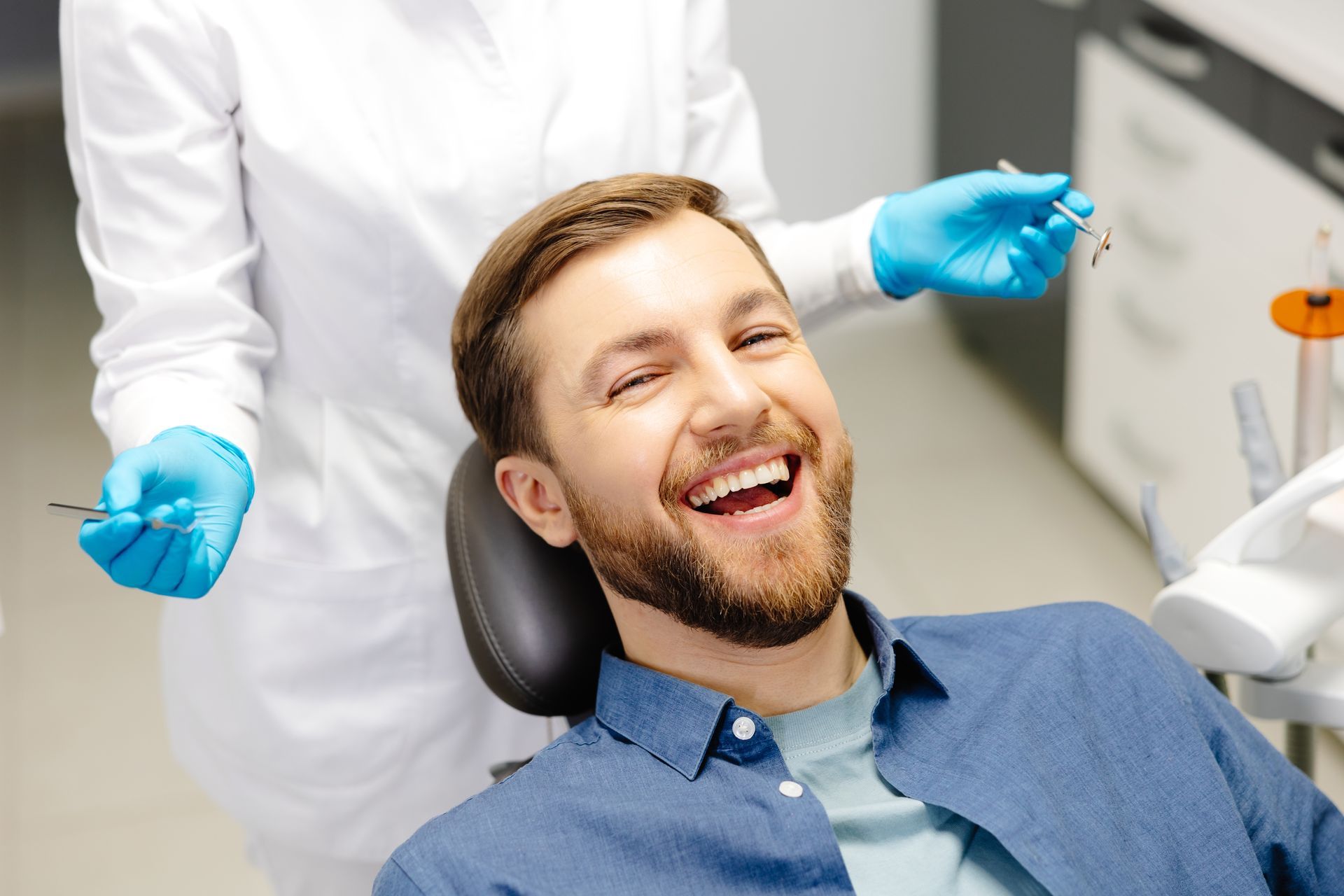
Let’s clear the air—just hearing the phrase “root canal” can make some people wince. But what if the fear is more myth than reality? Truth is, root canals are designed to relieve pain, not cause it. And thanks to modern endodontics, they’re quicker, more comfortable, and far more routine than you might expect. Endodontics is the dental specialty focused on the inner workings of the tooth—specifically the pulp and nerves. When this area becomes infected or inflamed, a root canal can save the tooth and stop the pain in its tracks. What Is Endodontics and Why Does It Matter? The word “endodontic” literally means “inside the tooth.” It’s a branch of dentistry that deals with diagnosing and treating problems in the tooth’s pulp (the soft tissue containing nerves and blood vessels) and the root canals. When decay, cracks, trauma, or deep fillings reach the pulp, bacteria can cause infection or inflammation. This often leads to: Severe tooth pain Sensitivity to hot or cold Swelling or tenderness around the tooth Darkening of the tooth Left untreated, the infection can spread, leading to abscesses, bone loss, or even tooth loss. That’s where root canal therapy steps in. Understanding Root Canals: What Really Happens? A root canal isn’t as scary as it sounds—it’s simply a treatment that removes infected pulp tissue from inside the tooth, disinfects the area, and seals it to prevent reinfection. Here’s what typically happens during a root canal: Numbing the area to ensure comfort throughout the procedure Accessing the pulp chamber through a small opening in the crown of the tooth Removing the infected or inflamed pulp using specialized instruments Cleaning and shaping the root canals for optimal sealing Filling the space with a rubber-like material (gutta-percha) Sealing the tooth with a temporary or permanent filling; a crown may follow The process usually takes one or two visits, and most patients describe it as no more uncomfortable than getting a regular filling. Benefits of Root Canals Backed by Endodontic Science According to the American Association of Endodontists (AAE), root canal treatments have a 95% success rate and can last a lifetime when paired with proper restorations and oral care. The benefits of endodontics and root canals include: Tooth preservation: Saves your natural tooth structure, which is always the best option when possible Pain relief: Eliminates the source of infection, reducing pressure and discomfort Quick recovery: Most patients return to normal activities within a day Aesthetic maintenance: Restores the function and look of your smile with minimal disruption Better oral health: Prevents infection from spreading to nearby teeth or bone Simply put, a root canal is a safe, effective way to stop pain and protect your smile. When Is a Root Canal Necessary? You might need a root canal if you’re experiencing any of the following: Persistent toothache or throbbing pain Lingering sensitivity to hot or cold Swelling or tenderness in the gums A tooth that’s darkened or discolored A small bump or pimple on the gums (indicating a potential abscess) Sometimes, you may need a root canal even without symptoms. That’s why routine exams and X-rays are so important—they help your dentist spot trouble before it gets worse. What Happens After a Root Canal? After the procedure, your tooth may feel slightly sensitive for a few days, especially if there was infection or inflammation. Over-the-counter pain relievers usually handle any post-treatment discomfort. If your tooth needs extra protection—especially molars exposed to heavy chewing—a crown may be placed over it to restore full strength and function. With good oral hygiene and regular checkups, your treated tooth can last for decades. Here’s how to care for it: Brush and floss daily Avoid chewing on hard objects (like ice or pens) Keep up with routine cleanings and dental visits Common Misconceptions About Root Canals Let’s set the record straight: Root canals are not painful. With today’s anesthesia and techniques, the process is as comfortable as a filling. They don’t cause illness. Myths linking root canals to disease have been thoroughly debunked by dental and medical researchers. They don’t weaken teeth. With proper restoration (like a crown), root canal-treated teeth can be just as strong as natural ones. Fear often comes from outdated info—but modern endodontic care is all about saving teeth and making patients feel better fast. Endodontics at Hillside Family Dentistry At Hillside Family Dentistry, we believe in taking the fear out of root canals. We use advanced technology and gentle techniques to ensure the experience is smooth from start to finish. Your comfort is our priority—and your natural teeth are worth saving. From diagnosis to final restoration, we walk with you every step of the way. And if you’re nervous, we’ll talk you through your options and help you feel at ease. A root canal might not be on anyone’s bucket list—but when it saves your tooth and stops the pain, it’s one of the most appreciated treatments in dentistry. Endodontics offers a second chance for your smile—without the fear. Experiencing tooth pain or sensitivity? Call Hillside Family Dentistry at 770-485-9949 to schedule a consultation and see if root canal therapy can help preserve your natural smile with comfort and care.
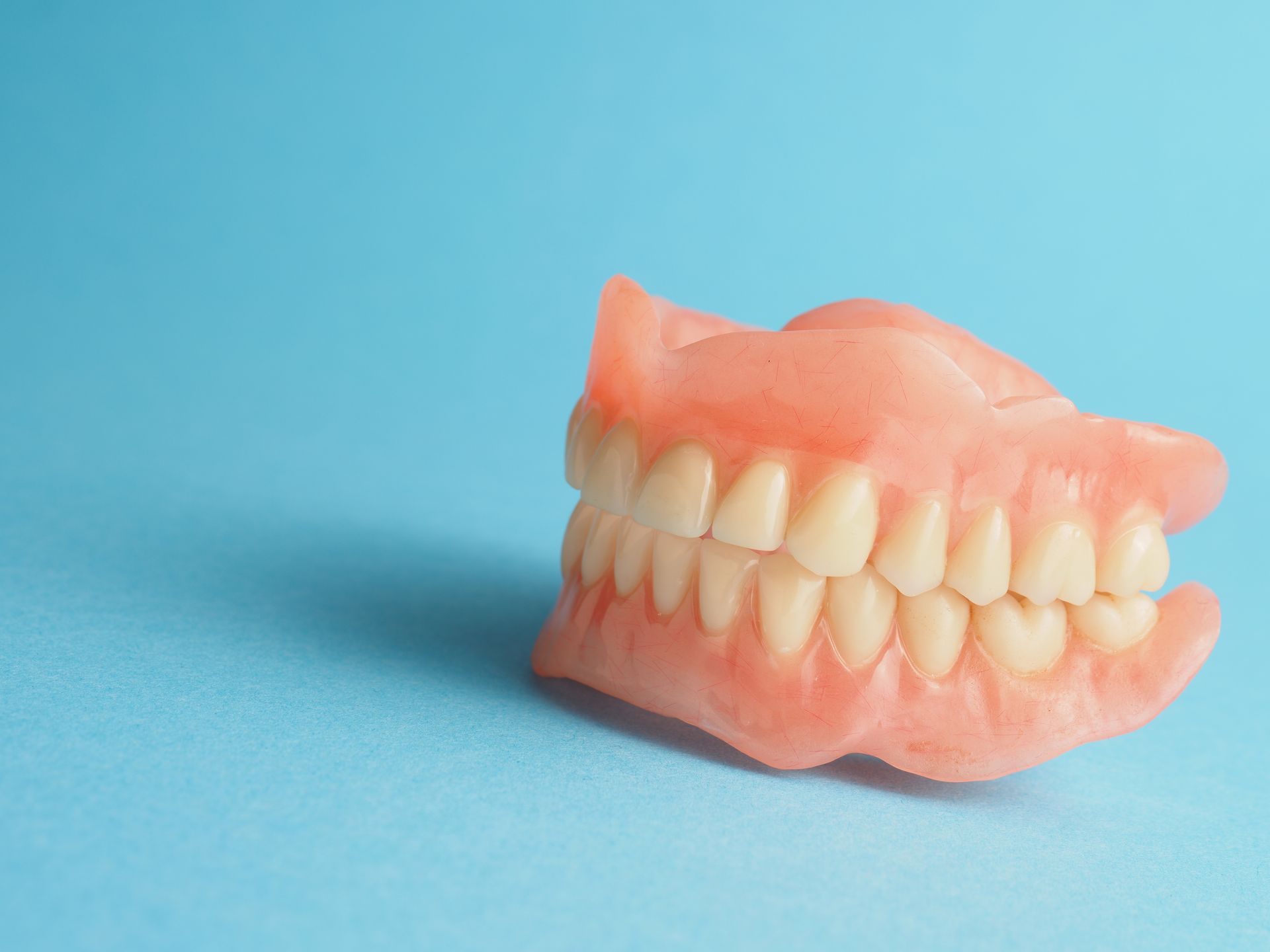
Losing teeth can feel like losing a part of yourself—but dentures offer a way back to confidence, comfort, and normalcy. Whether you're missing several teeth or an entire row, dentures can restore function and appearance in a surprisingly natural way. And no, today’s dentures aren’t the bulky, artificial-looking sets you may remember from decades ago. Advances in dental technology have made modern dentures sleeker, more comfortable, and more realistic than ever before. At Hillside Family Dentistry, we offer both partial and traditional dentures tailored to your needs, lifestyle, and smile goals. Understanding Dentures: What Are They and How Do They Work? Dentures are removable prosthetic appliances designed to replace missing teeth and surrounding tissue. Depending on how many teeth you're missing and where, there are two main types to consider: Partial dentures: Best for patients who still have some natural teeth remaining. These fit around existing teeth using a metal or acrylic base, filling in gaps with lifelike prosthetic teeth. Full (traditional) dentures: Designed for those missing all teeth in the upper or lower arch. They sit directly on the gums and are held in place by suction, adhesive, or a customized fit. Both types serve the same essential purpose: they help you chew food more effectively, speak clearly, and regain a natural appearance. Why People Choose Dentures Tooth loss isn’t rare. Whether due to decay, injury, or gum disease, it affects millions of Americans every year. Dentures remain one of the most trusted solutions—not just because they restore function, but because they help people feel like themselves again. Some common reasons people opt for dentures include: Difficulty chewing or speaking after tooth loss Aged or failing dental work that’s beyond repair A desire for a faster and more affordable solution compared to implants The need to restore facial volume and prevent the “sunken” look caused by missing teeth Benefits of Dentures You Might Not Have Considered Beyond the obvious (chewing and smiling again!), dentures offer a wide range of benefits—both physical and emotional. According to the American College of Prosthodontists and various clinical journals, properly fitted dentures can significantly improve patients’ quality of life. Here’s how: Restored facial structure: Dentures support the cheeks and lips, helping maintain a more youthful look. Improved speech clarity: Replacing missing teeth can reduce slurring or difficulty pronouncing certain words. Better digestion: Chewing efficiently aids digestion and overall nutrition. Boosted self-esteem: Many patients report feeling more confident and social after receiving dentures. Custom-fit comfort: Modern materials and digital impressions create dentures that feel and function naturally. And let’s not forget the practical side: dentures are one of the most affordable tooth replacement options, especially for those who may not be candidates for surgery or implants. The Denture Process: What to Expect At Hillside Family Dentistry, your denture journey begins with a thorough consultation. We’ll discuss your goals, take precise digital or traditional impressions, and review whether partial or full dentures make the most sense for you. Here’s what the process typically looks like: Initial evaluation: We assess your oral health and take impressions. Tooth extraction (if needed): In some cases, remaining teeth may need to be removed before fitting a full denture. Try-in and fitting: You’ll preview a wax model to check for fit, bite, and aesthetics. Final placement: Once approved, your final denture is fabricated and adjusted to ensure a comfortable, secure fit. Adjustments and follow-up: We’ll fine-tune as needed and provide care tips for cleaning and wear. Some patients may opt for immediate dentures, which are placed right after extractions to help them leave the office with a complete smile. These require relining over time as the gums heal. Are Dentures Right for You? Dentures are an excellent solution for many patients—but they’re not one-size-fits-all. The best candidates for dentures: Are missing several or all of their teeth Have healthy gums (or are willing to restore gum health) Want a cost-effective, non-surgical tooth replacement option Are committed to caring for their dentures and oral health If you’re on the fence, we’ll help you explore your options. Sometimes, a combination of dentures and dental implants (like implant-retained dentures) can offer the best of both worlds—security and affordability. Tips for Getting Used to New Dentures Adjusting to dentures is a bit like breaking in new shoes—it takes time. You may notice some initial discomfort, extra saliva, or slight speech changes. That’s normal. Here are a few tips to help ease the transition: Start with soft foods and work your way up Practice speaking by reading aloud Use recommended adhesives sparingly Keep dentures moist when not in use Clean them daily using a denture-safe brush and solution And most importantly, don’t hesitate to reach out for adjustments if something doesn’t feel right. A good fit is essential not only for comfort, but for function and long-term oral health. Dentures have come a long way—and they’re still changing lives every day. Whether you need a few teeth replaced or a full arch restored, partial and traditional dentures offer a reliable, attractive solution that helps you smile, eat, and live with renewed confidence. Thinking about dentures but not sure where to start? Call Hillside Family Dentistry at 770-485-9949 to schedule your denture consultation and find the option that fits your lifestyle and smile best.
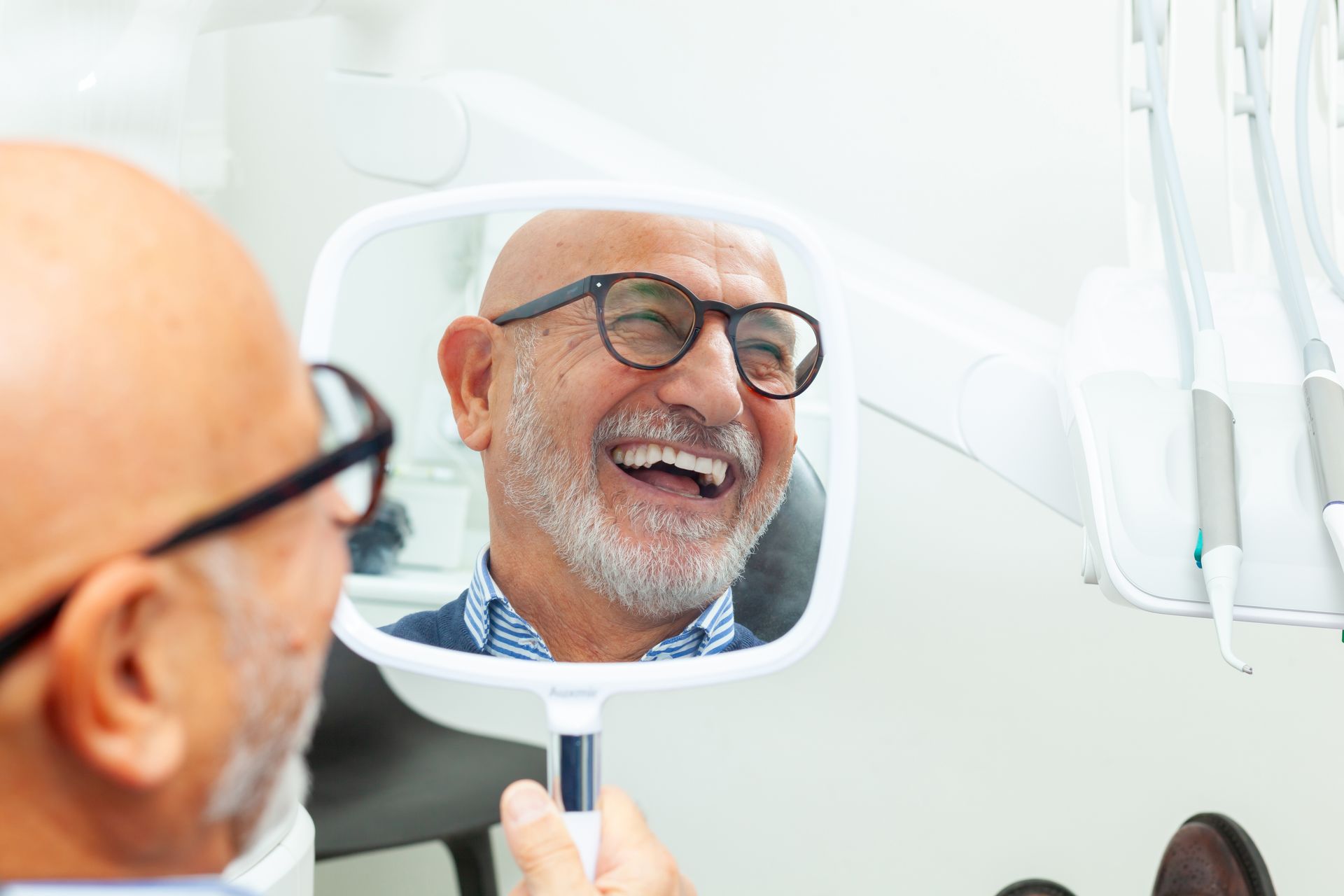
Imagine being able to eat, smile, and speak with total confidence—even after losing a tooth or two. Dental implants make that possible. Whether you’re missing one tooth or several, today’s implant solutions can help you feel whole again—without the slipping, clicking, or self-conscious moments often linked to traditional dentures. Dental implants aren’t just a replacement—they’re a restoration of function, form, and quality of life. And they’re more versatile than many people realize. Let’s unpack what dental implants are, how they work, and why they’ve become the go-to solution for both single tooth replacement and implant supported overdentures. What Are Dental Implants? Dental implants are small, biocompatible titanium posts that act like artificial tooth roots. They’re surgically placed into the jawbone, where they fuse with the bone over time (a process called osseointegration). Once healed, they serve as a sturdy foundation for a dental crown, bridge, or denture. There are two main ways implants are commonly used: Single tooth dental implants: Ideal when one tooth is missing. A crown is placed on the implant to blend in naturally with your smile. Implant supported overdentures: A full or partial denture that’s securely anchored to implants. This option offers more stability than removable dentures. These solutions provide long-term results that feel, look, and function more like natural teeth than any other restoration. Single Tooth Implants: One Replacement, Big Impact Losing a single tooth—whether from decay, injury, or gum disease—might seem minor at first. But over time, even one missing tooth can shift surrounding teeth, affect your bite, and cause bone loss in the jaw. Single tooth implants: Fill the gap left by a missing tooth without altering adjacent teeth (unlike bridges) Preserve jawbone health by stimulating the bone where the tooth once was Restore chewing function and speech Offer a natural appearance with a custom crown designed to match surrounding teeth With good care, single tooth dental implants can last a lifetime—and that’s a game-changer for patients looking for a permanent fix. Implant Supported Overdentures: Secure and Stable Tired of dentures that slip, click, or need messy adhesives? Implant supported overdentures might be the answer. Rather than relying on suction or adhesives to stay in place, overdentures are attached to 2–6 dental implants placed in the jaw. They can still be removable or fixed, depending on your needs and preferences, but they feel significantly more secure. Benefits include: Greater chewing power and stability Less irritation to gums and soft tissues Improved facial support and bone retention Enhanced comfort and confidence Patients often describe implant supported overdentures as “life-changing”—especially those who struggled with the unpredictability of traditional dentures. The Benefits of Dental Implants (And Why Dentists Recommend Them) Dental implants have earned their reputation as the gold standard for tooth replacement—and for good reason. According to the American Academy of Implant Dentistry (AAID) and studies published in the Journal of Oral Implantology, implants offer a 95%+ success rate and provide a host of long-term benefits, including: Bone preservation: Implants help prevent the bone loss that naturally occurs when teeth are missing. Longevity: With proper care, implants can last 20 years or more—often a lifetime. Functionality: They restore full biting strength, allowing patients to eat their favorite foods with ease. Aesthetics: Modern dental crowns and overdentures are custom-designed to look natural and flattering. Improved speech and comfort: No more lisping, slurring, or worry about teeth shifting while talking. From a dentist’s perspective, implants offer the most comprehensive solution for both aesthetic and functional restoration. What to Expect with Dental Implant Treatment Getting dental implants involves a multi-step process: Consultation & exam: X-rays or 3D imaging to assess bone health and plan placement. Implant placement: Performed under local anesthesia; healing time varies but usually takes a few months. Abutment placement: A small connector is added after healing to support the crown or denture. Final restoration: A custom-made crown or overdenture is placed for a seamless, functional finish. Many patients are surprised by how comfortable the process is and how little downtime is required. And the payoff? A restored smile that feels like your own. Who’s a Good Candidate for Dental Implants? Dental implants are suitable for most healthy adults. The ideal candidate will have: Healthy gums and adequate bone volume No untreated gum disease or active infection No habits like smoking that could affect healing If you’ve lost bone over time, don’t worry—bone grafting can often rebuild the area so implants can still be an option. And for older adults, age alone is not a barrier. At Hillside Family Dentistry, we conduct a thorough assessment to determine your candidacy and customize a plan that fits your unique needs and timeline. Caring for Your Implants Once your implant is in place, daily maintenance is surprisingly simple: Brush and floss as you would with natural teeth Avoid biting hard objects (like pens or ice) Keep up with regular dental checkups and cleanings Implant supported overdentures may require specific cleaning techniques, which we’ll guide you through in detail. With good hygiene and routine care, your implants should serve you well for decades. Dental implants do more than replace missing teeth—they restore confidence, comfort, and quality of life. Whether it’s a single implant or a full overdenture solution, they’re designed to help you live fully, eat freely, and smile often. Interested in learning whether dental implants are right for you? Call Hillside Family Dentistry at 770-485-9949 to schedule your consultation and discover a long-lasting solution that’s built to support your smile for life.

Ever look in the mirror and feel like your smile could use just a little something extra? Maybe your teeth are a bit dull, uneven, or discolored—and no matter how much you brush, they just don’t sparkle like they used to. That’s where cosmetic dentistry steps in, with two of the most popular and effective options: teeth whitening and veneers. Cosmetic dentistry isn’t about vanity—it’s about confidence. It’s about walking into a room without second-guessing your grin. And it’s more accessible than you might think. What is Cosmetic Dentistry? Cosmetic dentistry focuses on improving the appearance of your teeth, gums, and overall smile. While general dentistry is concerned with functionality and health, cosmetic treatments elevate your smile’s visual appeal. Two of the most common cosmetic procedures offered today are: Teeth whitening: Brightens the color of your natural teeth by removing stains and discoloration. Veneers: Thin, custom-made shells that cover the front surface of teeth to improve shape, color, size, or alignment. These treatments can be standalone or part of a larger smile makeover, depending on your goals. Professional Teeth Whitening vs. Store-Bought Kits Let’s be honest—store shelves are packed with whitening strips, trays, and LED gadgets that promise Hollywood-level brightness. But are they really the same as what your dentist offers? Not quite. In-office teeth whitening delivers noticeably whiter results in a single visit. Dentists use stronger, safer bleaching agents that can brighten your smile by several shades—without damaging your enamel or causing uneven color. Benefits of professional teeth whitening include: Faster and more dramatic results Supervised treatment to avoid sensitivity Custom application to ensure even whitening Meanwhile, over-the-counter kits can be hit or miss. They might help a little, but the results are usually subtle and short-lived. Plus, they carry a higher risk of gum irritation if used improperly. Veneers: The Power of a Total Smile Makeover If you’re dealing with more than just staining—like chipped teeth, gaps, or slightly crooked alignment—veneers might be the solution. Veneers are ultra-thin porcelain or composite shells that bond to the front of your teeth. They’re carefully crafted to match your desired shape, shade, and size. The result? A natural-looking, flawless smile that lasts. They’re ideal for addressing: Discolored or stained teeth that don’t respond to whitening Small gaps or misaligned teeth Chips, cracks, or uneven edges Teeth that are too small or worn down Veneers can transform your entire smile in just a few appointments. And they’re surprisingly durable—lasting 10–15 years or more with proper care. The Benefits of Cosmetic Dentistry Backed by Research Cosmetic dentistry isn’t just about looking good—it’s about how you feel. According to studies published in the Journal of Dentistry and the American Academy of Cosmetic Dentistry, patients who receive cosmetic treatments report higher levels of confidence, satisfaction in social settings, and even improvement in professional life. Here’s what cosmetic dentistry with teeth whitening and veneers can offer: Enhanced self-esteem: When you love your smile, you smile more—and that alone makes a big difference. Youthful appearance: Whiter, well-shaped teeth can help take years off your look. Long-lasting results: Professional whitening and porcelain veneers offer durable beauty when cared for properly. Non-invasive options: Many cosmetic treatments are simple, quick, and don’t require surgery. And let’s not forget: studies also show people often perceive those with bright, even smiles as more trustworthy and approachable. What to Expect from Cosmetic Dentistry at Hillside Family Dentistry When you come in for a cosmetic consultation at Hillside Family Dentistry, we take the time to understand your goals. Do you want a brighter smile for an upcoming event? Are you looking to change the shape or size of your teeth for a more uniform look? We’ll assess your current smile, discuss your options, and build a treatment plan that fits your vision. Whether you choose whitening, veneers, or a combination of both, our team ensures the process is smooth, comfortable, and tailored to your needs. Is Cosmetic Dentistry Right for You? Almost anyone in good oral health can be a candidate for cosmetic dentistry. However, it’s important to resolve any underlying dental issues—like gum disease or cavities—before starting cosmetic treatments. Ideal candidates for teeth whitening: Have healthy, unrestored teeth and gums Are looking to remove surface stains from coffee, wine, tobacco, or aging Ideal candidates for veneers: Have mostly healthy teeth Want to correct imperfections that go beyond simple whitening Are looking for a long-term cosmetic solution If you grind your teeth or have significant bite issues, we may recommend additional options before applying veneers to ensure long-lasting success. Keep That Smile Shining Cosmetic dentistry doesn’t stop at the dental chair. To get the most from your results, you’ll want to maintain good daily habits: Brush and floss daily Limit staining foods and drinks like red wine, soda, and coffee Avoid tobacco Schedule regular cleanings and check-ups A smile can be one of your most memorable features—and cosmetic dentistry makes sure it’s a feature you feel proud to show off. Whether you're dreaming of a whiter glow or picture-perfect teeth, the right treatment could be just one visit away. Ready to explore how cosmetic dentistry can give you a brand new you? Contact Hillside Family Dentistry at 770-485-9949 to schedule your consultation and discover which simple treatments might be right for your smile goals.

What if the best dental care was the kind that actually prevented problems before they even started? Sounds ideal, right? That’s exactly what preventative dentistry is all about—staying one step ahead so your smile stays strong, healthy, and stress-free for years to come. At its core, preventative dentistry is simple: it's the daily and routine care that helps you avoid tooth decay, gum disease, and more serious dental issues. And while brushing and flossing at home are part of the puzzle, there’s a lot more to it when you team up with a trusted dental professional. Let’s break it down so you know exactly what to expect—and why it’s worth prioritizing. What Is Preventative Dentistry? Preventative dentistry is the collective term for dental care practices that help prevent oral health problems before they develop or progress. Think of it as the dental equivalent of regular exercise and check-ups for your body. It includes: Professional dental cleanings Oral exams and X-rays Fluoride treatments Dental sealants At-home oral hygiene education Routine monitoring for early signs of decay, gum disease, or oral cancer Unlike treatments that aim to fix problems after the fact, preventative dentistry helps keep your natural teeth in tip-top shape and often reduces the need for more invasive (and costly) procedures later on. Why Routine Visits Matter More Than You Think It’s easy to underestimate the power of a 6-month dental visit—but those check-ups are doing more than just checking off a box. Regular visits help identify small concerns before they become painful or expensive issues. Here’s what typically happens during your preventative appointments: Dental cleaning to remove plaque and tartar buildup that brushing can’t reach Oral exam to detect signs of cavities, gum disease, or even oral cancer X-rays if needed, to get a deeper look at what’s happening beneath the surface Most people don’t feel symptoms of gum disease or tooth decay in the early stages. That’s why these visits are so important—they give your dental team a chance to catch issues before they cause damage. Daily Habits That Support Preventative Dentistry Great dental care doesn’t stop when you leave the office. What you do at home each day plays a huge role in your long-term oral health. The good news? It’s nothing too complicated. Here’s what your daily routine should include: Brush twice a day using fluoride toothpaste Floss once a day to remove plaque between teeth Use mouthwash for added protection Limit sugary and acidic snacks or drinks Stay hydrated to support saliva production And don't forget—consistency is key. Skipping a night of brushing here and there can slowly lead to bigger issues over time. The Benefits of Preventative Dentistry Backed by decades of dental research and real-world results, preventative care has some impressive benefits: Lower healthcare costs: According to the American Dental Association (ADA), preventive services reduce the need for costly emergency or restorative treatments. Better oral health outcomes: Regular cleanings and exams are linked to fewer cavities, reduced gum inflammation, and a higher chance of keeping your natural teeth. Improved whole-body health: Studies show connections between oral health and systemic conditions like heart disease and diabetes. Taking care of your mouth helps protect your overall health, too. Greater peace of mind: Preventative care helps you feel confident about your smile and avoid painful surprises. When prevention is part of your routine, you’re not just protecting your teeth—you’re investing in your health and well-being. Who Should Prioritize Preventative Dental Care? Short answer: everyone. Whether you’re six or sixty, preventative dentistry is essential. For kids, it helps establish lifelong habits and protects developing teeth. For adults, it helps avoid tooth loss and complications. And for seniors, it supports oral health as your needs change with age. If you have specific conditions—like dry mouth, a history of gum disease, or medical issues like diabetes—you may benefit from even more frequent visits and tailored home care tips. Take Control of Your Smile Preventative dentistry may not be flashy or dramatic, but it’s one of the smartest investments you can make in your health. A few simple steps—done regularly—can save you from years of discomfort, stress, and extra costs. Don’t wait for a toothache to tell you it’s time. Stay ahead of the curve with proactive care and a trusted dental team by your side. Looking for expert preventative dentistry in Acworth? Call Hillside Family Dentistry at 770-485-9949 to schedule your visit and take the first step toward a healthier, brighter smile.

Have you ever noticed how one aching tooth can eclipse everything else on your to-do list? When pain radiates from deep inside a tooth, it often signals infection in the pulp—the soft core that keeps a tooth alive. Modern endodontics offers a proven solution: the root canal procedure. In this guide, you’ll discover what is a root canal?, learn to spot the signs that prompt people to ask do I need a root canal?, and see why this treatment remains one of dentistry’s most trusted ways to save natural teeth. What Is a Root Canal? A root canal is a gentle, step-by-step procedure that removes infected or inflamed pulp, disinfects the inner chamber, and seals the space to prevent future problems. Though many people casually call the entire appointment “getting a root canal,” the term literally describes the narrow canals inside each tooth root where nerves and blood vessels live. Access and Cleaning – After numbing the tooth, the dentist creates a tiny opening, then uses slender files to clear out bacteria and damaged tissue. Disinfection – Antimicrobial rinses flush away lingering germs, ensuring a clean slate. Filling – The empty canals are packed with a biocompatible, rubber-like material called gutta-percha. Sealing – A filling or crown closes the access point and restores full biting strength. Because local anesthesia blocks pain, most people say a root canal feels similar to getting a standard filling—nothing like the dramatic portrayals you may have seen on TV. Wondering again, what is a root canal? Think of it as an infection-clearing, tooth-preserving deep clean done from the inside out. Do I Need a Root Canal? Recognizing the Signals If you catch yourself asking, do I need a root canal?, look out for these common red flags: Lingering Toothache – Sharp or throbbing pain that continues long after hot or cold foods are gone. Spontaneous Pain – Discomfort that flares up without warning. Sensitivity to Pressure – Soreness when biting or chewing on one side. Darkening Tooth Color – A gray or black hue can hint at pulp damage. Swelling or a “Pimple” on the Gums – Infection sometimes drains through the gumline, creating a small bump. Only a professional exam with X-rays can confirm whether infection has reached the pulp. Acting quickly matters; postponing treatment allows bacteria to spread, leading to an abscess or even tooth loss. Step-by-Step: Inside the Treatment Room Understanding the process demystifies it—and that alone can calm nerves: Comfort First – Local anesthetic numbs the area, so you stay relaxed throughout the visit. Isolation – A small protective sheet called a dental dam keeps the tooth dry and bacteria-free. Precision Cleaning – Nickel-titanium files, guided by digital imaging, clean and shape every canal. Three-Dimensional Filling – Heated gutta-percha flows into microscopic spaces, sealing out future invaders. Strong Restoration – A custom crown returns full function and guards against fractures. Thanks to rotary instruments, 3-D imaging, and new sealing materials, success rates now exceed 95 percent according to the American Association of Endodontists (AAE). Knowing these facts helps answer what is a root canal? while reassuring you that the procedure is efficient, predictable, and highly effective. Why Choosing a Root Canal Is Worth It Professional organizations such as the AAE and the American Dental Association (ADA) highlight several compelling benefits: Tooth Preservation – Keeping your natural tooth intact maintains chewing efficiency and protects neighboring teeth from shifting. Reliable Pain Relief – By removing the infection source, a root canal ends the kind of ache that can keep you up at night. High Success, Long Life – Treated teeth often last a lifetime with proper care, rivaling or exceeding other restorative options. Cost-Effective Care – Extracting and replacing a tooth with an implant or bridge typically costs more time and money. Prevents Spread of Infection – Clearing bacteria stops the infection from affecting adjacent teeth or entering the bloodstream, safeguarding overall health. Each advantage underscores why so many dentists and specialists recommend root canal therapy when the pulp is compromised. Life After Treatment: Simple Habits for Long-Term Success Healing is straightforward, but smart habits ensure your restored tooth thrives: Complete the Crown – A permanent crown is essential; it shields the tooth from fracture and future decay. Brush, Floss, Rinse – Daily oral hygiene keeps bacteria in check throughout your mouth. Schedule Regular Exams – Semi-annual visits let Dr. Ada monitor healing and catch any new issues early. Chew Carefully at First – Use the opposite side until your final crown is placed. Report Any Recurring Pain – While rare, lingering discomfort deserves prompt evaluation. Adopting these habits boosts the odds that you’ll never need to ask do I need a root canal? for that tooth again. Take the Next Step Toward Comfortable Smiles Root canal therapy isn’t the villain of dental folklore; it’s the hero that rescues infected teeth, relieves pain, and lets you keep the smile you were born with. Now that you know what is a root canal? and can identify the symptoms that prompt the question do I need a root canal?, don’t let a toothache dictate your day. If you suspect trouble, call Hillside Family Dentistry at 770-485-9949 or visit us at 4408 Cobb Pkwy NW, Acworth, GA 30101. Our compassionate team, led by Dr. Ada, will evaluate your tooth, discuss treatment options, and guide you toward lasting relief. Saving your natural smile could be just one comfortable appointment away—reach out today!

Have you ever wondered why a perfectly good tooth can suddenly develop a tiny dark spot that grows into a painful problem? Cavities can seem to appear out of nowhere, yet they follow clear rules of science and oral hygiene. Understanding what is a cavity?—and just as importantly, how do I know if I have a cavity—is the first step toward keeping every tooth strong for life. Decoding Tooth Decay: What Is a Cavity? A cavity is a permanently damaged area in the hard surface of a tooth that turns into a small opening or hole. When sugars and starches from food stay on the teeth, bacteria feed on them and produce acids. Over time, these acids dissolve enamel—the tooth’s tough outer layer—leading to decay. Left unchecked, the damage can reach the softer dentin underneath and even the nerve-rich pulp in the center of the tooth. Think of enamel as a castle wall. Once acid erosion breaks a breach in that wall, it becomes easier for invaders (more bacteria) to enter. According to the American Dental Association, enamel doesn’t grow back on its own, so early discovery is crucial. Daily brushing with fluoride toothpaste, flossing, and professional cleanings help rebuild minerals in weakened enamel, sealing tiny areas before they expand into full cavities. Cavity Clues: How Do I Know If I Have a Cavity? Early cavities often cause no pain, which is why routine exams at Hillside Family Dentistry are essential. However, your body does send warning signals. Watch for these common signs: Tooth sensitivity to cold drinks, sweet snacks, or even a burst of chilly air Visible spots or stains that are white, brown, or black on the tooth surface Persistent bad breath that brushing and mouthwash can’t mask A rough feeling when you glide your tongue across a tooth Sharp pain when biting down or chewing on one side If you notice one or more of these clues and find yourself asking “how do I know if I have a cavity?” it’s time to schedule a check-up. Dr. Ada and the team use low-radiation digital X-rays to see beneath the surface, confirming whether decay is present and how far it has progressed. Seeing Is Believing: What Do Cavities Look Like? Cavities can appear different based on their stage and location: Smooth-surface cavities often start as chalk-white patches near the gumline. They’re easiest to reverse if caught early. Pit and fissure cavities hide in the grooves on top of molars. They may look like tiny brown or black dots but spread wide underneath. Root cavities form on exposed roots when gums recede. They usually look like dark, soft areas near the gum edge. Under bright dental lights—or in photos from an intraoral camera—you might see a cavity as a shadowy spot or a hole. Yet many cavities live between teeth where your eye can’t reach, reinforcing the value of professional exams. The Benefits of Early Detection and Treatment Professional insight: The Centers for Disease Control and Prevention notes that tooth decay is the most common chronic disease of children and adults, but it’s also highly preventable. Why catching a cavity early matters Less drilling, more saving. Small cavities can often be treated with a conservative composite filling that preserves most of your natural tooth structure. Cost control. Minor repairs cost a fraction of root canal therapy or a crown needed for advanced decay. Comfort first. Early treatment eliminates pain before it starts, sparing you nighttime throbs or emergency visits. Whole-body health. Untreated cavities may lead to infections that travel through the bloodstream, affecting heart health and more, according to research published in the Journal of Dental Research. Confidence in your smile. Restoring a tooth to full strength lets you chew, speak, and laugh without worry. Take Action Before Decay Takes Over Cavities don’t heal themselves. By now you know the answer to “what is a cavity?” and can recognize the key signals when wondering “how do I know if I have a cavity.” Early detection protects your smile, your wallet, and your overall well-being. If you’ve spotted any warning signs—or if it’s been more than six months since your last exam—call 770-485-9949 or visit Hillside Family Dentistry at 4408 Cobb Pkwy NW, Acworth, GA 30101 . Dr. Ada’s experienced team will provide a gentle evaluation, clear answers, and a personalized plan to keep every tooth at its best. Invest in prevention today, and enjoy a cavity-free smile tomorrow!
